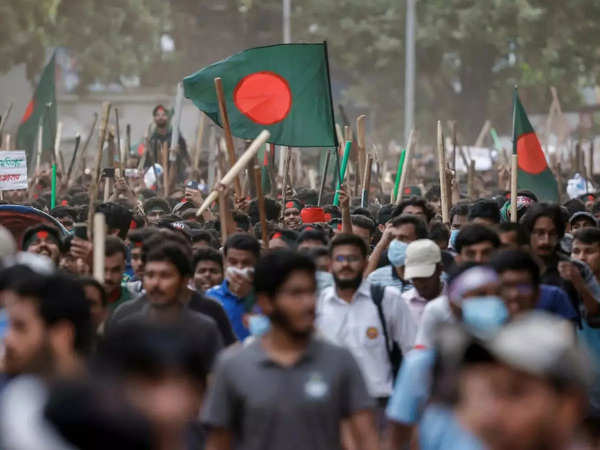The Bangladesh government has decided to impose a nationwide curfew and deploy the army, according to BBC Bangla, citing Prime Minister Sheikh Hasina’s press secretary. This move comes amid expanding student-led protests against government job quotas.
Prime Minister’s press secretary, Nayeemul Islam Khan, informed BBC Bangla that an official announcement regarding the curfew would be made soon.
On Friday, three individuals were killed as police attempted to suppress persistent student protests against the job quotas, despite a ban on public gatherings, local media reported.
Reuters journalists reported seeing police using tear gas to disperse protesters in several areas. One journalist observed multiple fires and smoke rising in various parts of the capital, Dhaka.
Protesters clashed with Border Guard Bangladesh (BGB) and police outside Bangladesh Television, resulting in widespread violence. Telecommunications were disrupted, and television news channels went off the air. Authorities had previously cut some mobile phone services to quell the unrest.
Bengali newspaper Prothom Alo reported that train services were suspended nationwide as protesters blocked roads and threw bricks at security personnel.
Violence on Thursday affected 47 of Bangladesh’s 64 districts, resulting in 27 deaths and 1,500 injuries.
By Friday night, the death toll from the protests had reached 105, according to AFP, citing hospitals. Reuters could not verify these reports, and police have not released an official casualty count.
The US Embassy in Dhaka reported over 40 deaths and “hundreds to possibly thousands” injured across Bangladesh. In a security alert, it described the situation as “extremely volatile” with violent clashes reported across Dhaka.
The protests began over student anger at a quota system reserving 30% of government jobs for the families of those who fought for independence from Pakistan. The unrest has been exacerbated by high unemployment among young people, who make up nearly a fifth of the 170 million population.
Analysts suggest that broader economic issues, such as high inflation and dwindling foreign exchange reserves, are also fueling the violence. The protests have exposed deep political divisions between those who fought for Bangladesh’s independence in 1971 and those accused of collaborating with Pakistan. Prime Minister Hasina’s Awami League party has labeled the protesters “razakar,” a term used for independence-era collaborators.
International rights groups have criticized the government’s suspension of services and the actions of security forces. The European Union expressed deep concern over the violence and loss of life, calling for a peaceful resolution based on the rule of law and democratic freedoms.
India, meanwhile, described the unrest as an internal matter for Bangladesh and assured that all 15,000 Indians in the country were safe, with Indian students returning home by road.
Protests linked to the unrest also erupted in London, where police had to break up clashes among large groups of men in the city’s east, home to a sizable Bangladeshi population.
Friday began with major disruptions to internet and telephone services, while the websites of several Bangladesh newspapers were inactive. Voice calls were sporadic, and there was no mobile data or broadband service. News channels and the state broadcaster BTV went off the air, though entertainment channels remained unaffected.
Several government websites, including those of the central bank, prime minister’s office, and police, were hacked by a group calling itself “THE R3SISTANC3,” which posted messages denouncing the government’s actions and declaring, “It’s not a protest anymore, it’s a war now.”
The government has not commented on the communication issues. On Thursday, it had expressed willingness to hold talks with the protesters, who refused. Tarique Rahman, the exiled acting chairman of the main opposition Bangladesh Nationalist Party (BNP), claimed many opposition leaders, activists, and student protesters had been arrested, though Reuters could not confirm these arrests.




